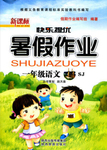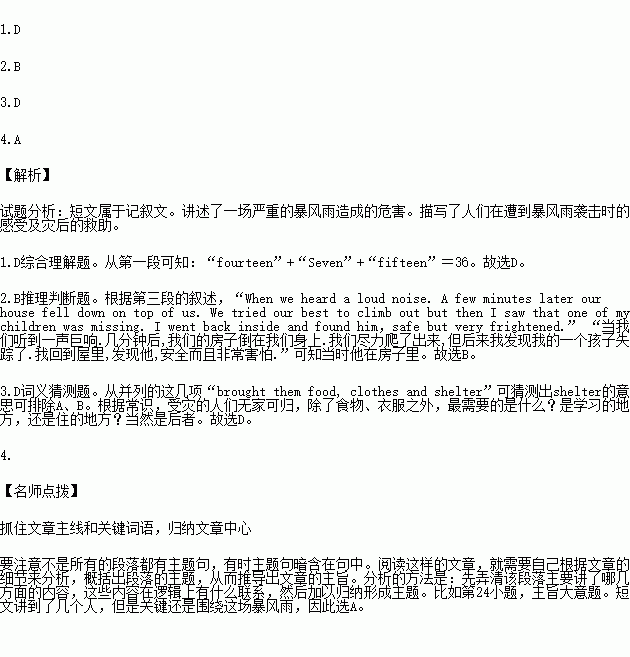题目内容
Last Friday a storm swept through two villages in the New Territories,destroying fourteen homes. Seven others were so badly damaged that their owners had to leave them,and fifteen others had broken windows or broken roofs. One person was killed,several were badly hurt and taken to hospital,and a number of other people received smaller hurt. Altogether over two hundred people were homeless after the storm.
A farmer,Mr. Tan,said that the storm began early in the morning and lasted for over an hour.
“I was eating with my wife and children,”he said,“When we heard a loud noise. A few minutes later our house fell down on top of us. We tried our best to climb out but then I saw that one of my children was missing. I went back inside and found him,safe but very frightened.”
Mrs. Woo Mei Fong said that her husband had just left for work when she felt that her house was moving. She ran outside at once with her children.
“There was no time to take anything,”she said,“A few minutes later,the roof came down.”
Soldiers helped to take people out of the flooded area and the welfare department (福利机构) brought them food,clothes and shelter.
1. How many homes altogether were damaged in the storm?
A. Fourteen B. Twenty-one
C. Twenty-nine D. Thirty-six
2.Where was Mr. Tan when the storm first began?
A. He was in bed. B. He was inside the house.
C. He was outside the house. D. He was on the roof.
3.The underlined word “shelter” in this passage means ______.
A. something to eat B. something to wear
C. somewhere to study D. somewhere to stay
4.Which of he following may be the best title for this passage?
A. A Terrible Storm B. A Lucky Woman
C. Good Soldiers D. Clever People
 新课标快乐提优暑假作业陕西旅游出版社系列答案
新课标快乐提优暑假作业陕西旅游出版社系列答案
